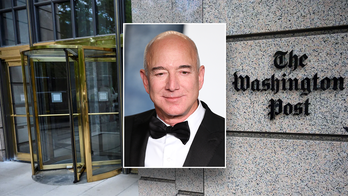In an exclusive interview with Fox News, 104-year-old World War II veteran Steven Melnikoff reflects on his service and draws parallels between the current state of America and the events leading up to the Second World War.

In the twilight of his remarkable life, 104-year-old World War II veteran Steven Melnikoff has witnessed the rise and fall of nations, the horrors of war, and the triumphs of the human spirit. Now, as he reflects on his experiences, he sees an eerie resemblance between the present-day United States and the tumultuous years leading up to the Second World War.
Melnikoff, who bravely stormed Omaha Beach during the D-Day landings, sits down with Fox News anchor Martha MacCallum in Normandy, France, to share his insights on the state of America today. "I see some things that I really don't like," he says. "I see a resemblance to what happened in 1939, 1938. I was there. I'm not reading a book or something like that. I was there, and this feeling that we have - the people are so absorbed with themselves - they're not the way we were. We volunteered, we were drafted - but we knew we had a mission we did."

Melnikoff's words carry the weight of history. He witnessed firsthand the rise of Nazism in Germany, the horrors of the concentration camps, and the devastation of war. He knows the importance of standing up for what is right, even when it is difficult.
One particular event that weighs heavily on his mind is Kristallnacht, the night in November 1938 when Nazi activists and sympathizers plundered and set fire to Jewish businesses and synagogues throughout Germany and Austria. It was a horrific display of anti-Semitism that foreshadowed the horrors to come.

Melnikoff sees echoes of Kristallnacht in the rising tide of intolerance and bigotry in America today. He is concerned about the increasing polarization of society and the erosion of civility. "I always tell people we were a hell of a lot tougher than you guys," he says. "Yeah, because we didn't have the conveniences. I can remember my mother lighting the gas lamp in the house. I can remember all the things that we went through."
Melnikoff contrasts his childhood with that of modern America, emphasizing the greater independence that characterized his generational gap. Despite the hardships of the Great Depression, he and his friends found joy and adventure in their own imaginations. "We had a depression, but don't be sorry for us. But I guarantee you, when I was a kid, I had a lot more fun than your kids have. Because you know what it was, we were independent, and they let us plan our games, play our games, get messed up - it didn't matter… you know, we played football. We didn't have padding all, so we had a generation that because you had to walk to school, they put all the shoes on ya they say go to school, that's it, and back. And so we were independent. And I think that that was a generation that we were able to do things because they were mostly factory workers."

Melnikoff's experiences have taught him the importance of resilience, self-reliance, and community. He is hopeful that the present generation can learn from the lessons of history. "I hope that they'll be able to do something like our generation if it becomes necessary. And I see things on the edges that's sort of a reminder to me of that period."
As the 80th anniversary of D-Day approaches, Melnikoff reflects on the sacrifices made by his fellow soldiers. He is grateful for the opportunity to honor their memory and share his story. "I'm 104. I'm in pretty good health, I say I'm okay," he says. "But you know something, because we were poor, we ate basic foods, we had rye bread, we had very little meat because it's too expensive, a lot of vegetables. Now the dietists tell you hey you're supposed to do that. We didn't have white bread because it's more expensive than black bread. Now it's going for far less. So when I say were tougher, it was just we were forced to be tougher.."

Melnikoff's words resonate in the present day, a reminder of the importance of vigilance, unity, and courage in the face of adversity.










